The coolness of Fall is a delight to all beekeepers who have been suffering from humidity and sweat all during the long Carolina summer. Our beesuits that were resplendent, crisp and white in early Spring are now sweaty, smokey and possibly covered with dirt, wax, propolis and bee poop. (Unless of course you have laundered your suit periodically – as you should).
Hopefully you have checked your colonies to insure they have sufficient winter stores before the cold weather is here to stay. In Upstate SC, we have now experienced a killing frost- very little or no fresh nectar will be available for foraging. You may also be running out of time to feed them sugar water as they can not access it well during the cold. We encourage our customers to check the honey stores of their colonies in September-October to give the bees their best chance of survival.
In our local area, it is not necessary to wrap beehives for the winter. In fact, most beekeepers leave the screen bottom boards open and only reduce the entrance to help the bees protect the hive as bee numbers dwindle over winter. You may start out will a large cluster in late Fall but the number of bees alive in January/February will be less as bees start to die before new ones are produced. A healthy cluster with plenty of food stores in the correct location should be able to maintain survival temperatures. The bees must consume food to generate heat. We are often impressed by beekeepers in colder regions who require extensive insulation to help their bees. One of our customers photographed this Alaskan beehive that was fully wrapped in straw against the winter cold. Luckily, this is not necessary here and you may even do more harm by trapping excess moisture inside the hive.
Honeybees practice homeostasis and maintain a nearly constant temperature during the winter but only inside the cluster itself. With the warmest temps in the middle of the cluster – it becomes cooler on the outside wall of bees and the temps inside the hive itself may get quite cold. Bees don’t need or require a heated space. Thermal imaging shows where the clusters are located in the boxes by the colors shown in the image.
So make sure your bees are ready for winter with good stores and we will hope for an early spring. 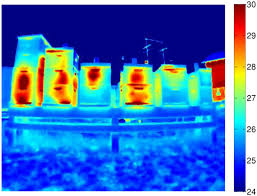
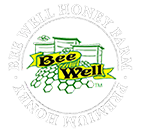


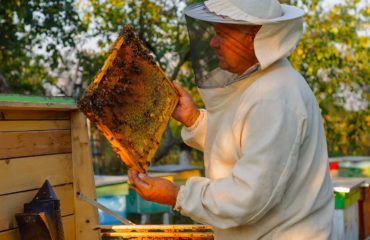
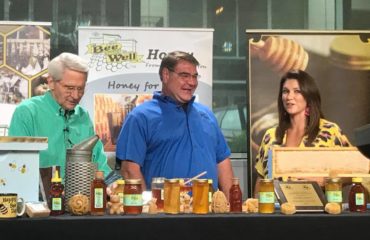
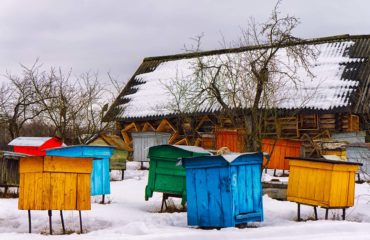
You must be logged in to post a comment.